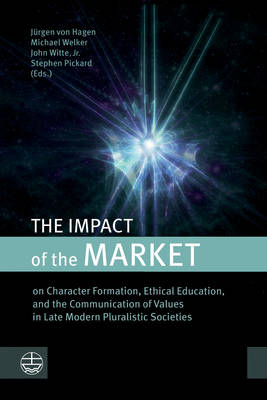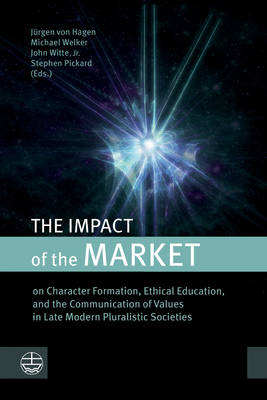
Je cadeautjes zeker op tijd in huis hebben voor de feestdagen? Kom langs in onze winkels en vind het perfecte geschenk!
- Afhalen na 1 uur in een winkel met voorraad
- Gratis thuislevering in België vanaf € 30
- Ruim aanbod met 7 miljoen producten
Je cadeautjes zeker op tijd in huis hebben voor de feestdagen? Kom langs in onze winkels en vind het perfecte geschenk!
- Afhalen na 1 uur in een winkel met voorraad
- Gratis thuislevering in België vanaf € 30
- Ruim aanbod met 7 miljoen producten
Zoeken
Omschrijving
Pluralism has become the defining characteristic of modern societies. Individuals with differing values clamor for equality. Organizations and groups assert particular interests. Social movements flourish and fade. Some see in this clash of principles and aims the potential for a more just human community, while others fear the erosion of enduring culture. Yet beneath this welter stand powerful and pervasive institutions, whose distinctive norms profoundly shape our moral commitments and character--notably the family, the market, the media, and systems of law, religion, politics, research, education, health care, and defense. Drawing on scholarship from five continents, many disciplines, and diverse religious perspectives, this series examines the impact of these various institutions on moral education, character, and values. As globalization carries the shifting dynamic between individuals and institutions into every part of the globe, the contributors hope that this conversation will help address the increasing challenges confronting our pluralist societies and our world. In the theoretical, empirical, and historical contributions to this volume, theologians, economists, and market practitioners discuss the many tensions between market economics, ethics, and the Christian religion, thus adding to the fruitful and much needed dialogue between economics and theology. With contributions by Jason Brennan, Michael J. Broyde, Ginny Seung Choi, Samuel Gregg, Peter Lampe, Manfred Lautenschlager, Frank J. Lechner, Klaus Leisinger, Katrin Gulden Le Maire, Piet Naude, Paul Oslington, Stephen Pickard, William Schweiker, Virgil Henry Storr, Jurgen von Hagen, Michael Welker, Kaja Wieczorek and John Witte. Contributions by Peter Carnley, Gregor Etzelmuller, Johannes Eurich, Jennifer Herdt, Admiel Kosman, Piet Naude, Waihan Ng, Friederike Nussel, Bernd Oberdorfer, Martin Percy, Stephen Pickard, Raja Sakrani, William Schweiker, Philipp Stoellger, Milton Wan, Renee Ip, Michael Welker and John Witte, Jr.
Specificaties
Betrokkenen
- Uitgeverij:
Inhoud
- Aantal bladzijden:
- 300
- Taal:
- Engels
- Reeks:
Eigenschappen
- Productcode (EAN):
- 9781666750591
- Verschijningsdatum:
- 29/07/2022
- Uitvoering:
- Hardcover
- Formaat:
- Genaaid
- Afmetingen:
- 152 mm x 229 mm
- Gewicht:
- 571 g

Alleen bij Standaard Boekhandel
+ 172 punten op je klantenkaart van Standaard Boekhandel
Beoordelingen
We publiceren alleen reviews die voldoen aan de voorwaarden voor reviews. Bekijk onze voorwaarden voor reviews.








